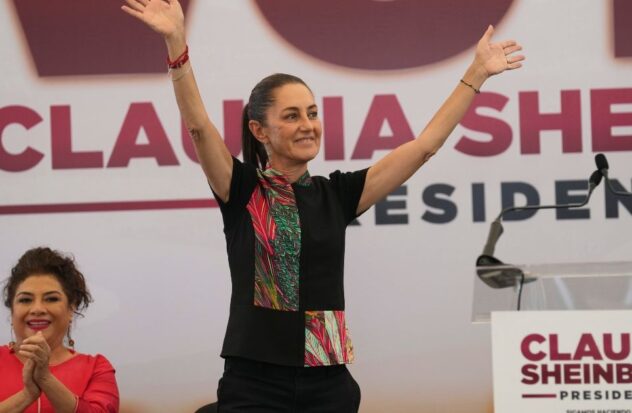MEXICO CITY.- Claudia Sheinbaum, the new president of Mexico and the first woman to govern the country in its more than 200 years of independent life, took power with a promise of continuity that facilitated her victory on Sunday with a wide advantage, according to the official quick count.
At 61 years old, the former mayor of Mexico City, a lifelong leftist, deployed a very structured campaign taking advantage of the popularity of her predecessor. But once with the baton of command, Mexicans will be able to see how Sheinbaum positions herself, with a personality very different from that of her mentor and current president Andrés Manuel López Obrador.
Although her political closeness to López Obrador is undoubted, with whom she shares her way of understanding the role of the government in the fight against inequality, she is considered less combative and more focused on data.
Sheinbaum has insisted on emphasizing his scientific training during the campaign. She has a PhD in Energy Engineering. Her brother is a physicist. In an interview with The Associated Press in 2023, she proclaimed, “I believe in science.”
That scientific background was evident in the decisions Sheinbaum made as mayor during the COVID-19 pandemic, when the city of about nine million inhabitants opted for a different approach than the one López Obrador advocated at the national level.
As the federal government downplayed coronavirus testing, Mexico City expanded its testing policy. Sheinbaum limited working hours and conditions at companies as the virus spread rapidly, even though López Obrador wanted to avoid any restrictions that could harm the economy. She also publicly wore a mask and urged social distancing as the president continued to lunge at crowds.
The persistently high levels of violence in Mexico will be one of the most immediate challenges for the new president after her inauguration on October 1. During the campaign he did not delve much into his security strategy beyond his intention to reinforce the National Guard, as an almost militarized body, created by López Obrador and to maintain the strategy of combating the underlying social problems that push so many young Mexicans to crime and makes them easy targets for cartel recruitment.
“It is not about a strong hand, wars or authoritarianism but about justice,” said Sheinbaum about his proposal to stand up to criminal gangs in his final campaign act. “The strategy that we will promote will be to address the causes and continue advancing towards zero impunity.”
Sheinbaum has profusely praised López Obrador and has remained in line with what the president himself has defended. He has blamed neoliberal economic policies for condemning millions of people to poverty, promised a strong welfare state and praised the Mexican state oil major Pemex, while promising to step up the use of clean energy.
“Being on the left has to do with that, with guaranteeing the minimum rights to all inhabitants,” Sheinbaum told the AP last year.
Unlike López Obrador, who on several occasions became entangled in public discussions with representatives of other branches of power, such as the judiciary or the electoral branch, and also with the media, what has been seen of Sheinbaum so far is that he is less confrontational or, at least, more selective in its battles.
“It seems that it is going in a different direction,” said Ivonne Acuña Murillo, a political scientist at the Universidad Iberoamericana. “I don’t know how much.”
Source: With information from AP


